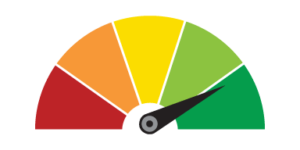
Reading a story today on CityAm* about a recent survey conducted by Equiniti on employees and their saving habits; few things stood out.
Just under half (46 percent) of workers want their employers to offer them financial education, while a similar proportion (49 per cent) feel their workplaces could do more to help them make informed savings and investment choices. 58 per cent of savers and investors are not putting away as much money as they would like, with a fifth (19 per cent) saying this is because they are not sure of where best to invest their hard earned cash next.
“…It’s in the employers’ interest, it helps build loyalty and mitigate financial stress …” normally one would think that having some savings should relieve stress, not cause it. A lot of companies, when they think of financial stress and employees being in distress think of employees who are prone to fall prey to payday lenders or have an unsustainable balance on their credit cards. The savers are thought of as people who are financially prudent and hence need no help.
According to a recent post by Daily Mail*, “Millions of customers with savings accounts in Britain are already suffering from historically low returns, with many popular savings accounts paying close to zero.” Financial Conduct Authority has also named and shamed few banks and Post Office as having easy access accounts that in some circumstances pay no interest. Many banks have been criticised for so-called ‘teaser rates’ which lure customers before slashing back the benefits once the cash has been deposited”.Long term financial education and investments through company share plans are good but the employers also need to look at short and medium term savings of their employees. Money that is being saved for Christmas shopping, a big purchase, a holiday or for a rainy day unexpected expense. Having this money
Long term financial education and investments through company share plans are good but the employers also need to look at short and medium term savings of their employees. Money that is being saved for Christmas shopping, a big purchase, a holiday or for a rainy day unexpected expense. Having this money sit in a zero interest zombie bank account isn’t the only option.
Credit Unions are the original P2P (peer 2 peer) Finance companies since the time P2P Finance or the social economy weren’t fancy terms. Members savings are not just protected under the FSCS (just like a bank) but they earn dividends on their deposits at the end of the year. Unlike saving account interest rates of banks, the dividends are not fixed or reduced by the credit unions. It is directly linked to the money the credit union earns by lending to its members.
So it is a win-win situation – you save when you don’t need the money, withdraw when you need it. If you need more than you have saved, then you can borrow from the credit union itself and help yourself and other members earn dividends from the money you borrow. Member helps member, the social economy at its original best.
FairQuid runs the tech platform where you can connect your employees to your local credit union and instil long-term financially behaviour change. Start now


